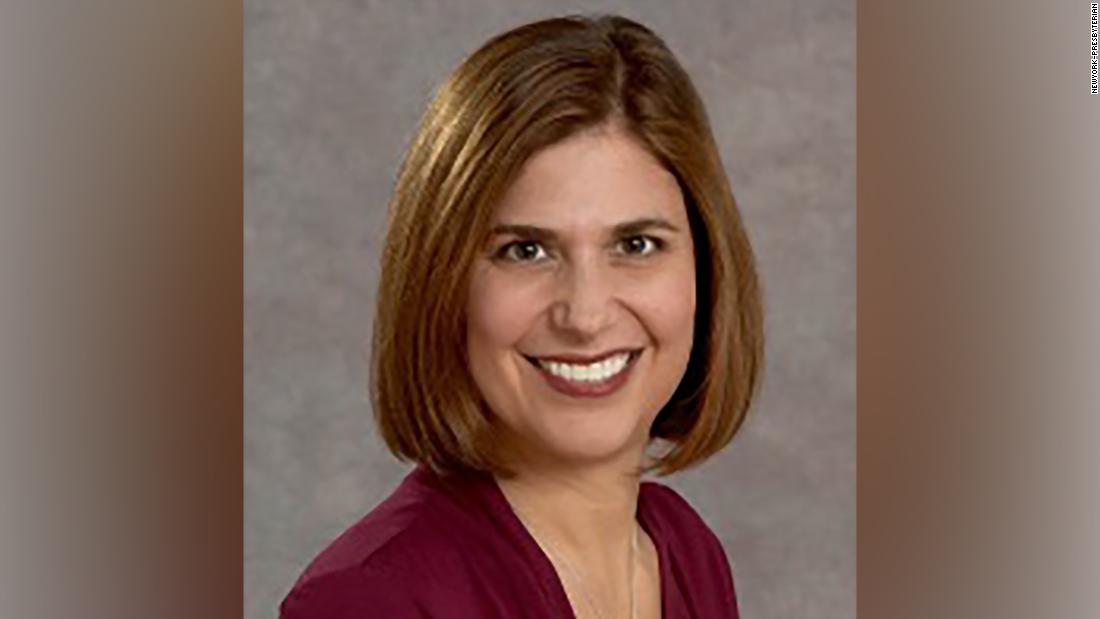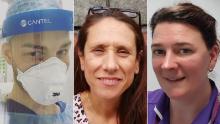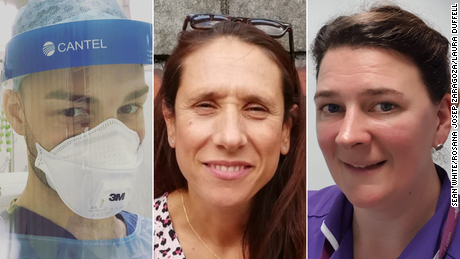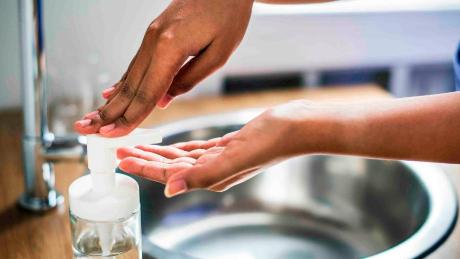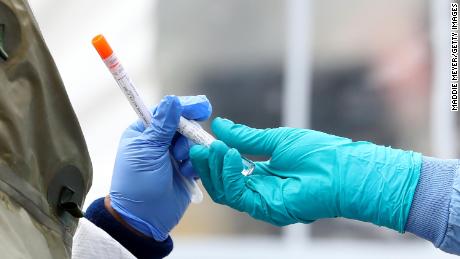Stress on health care workers is creating ‘second victims’ in the coronavirus pandemic
“Even outside of the pandemic, you’re talking about a vulnerable population of people,” CNN Chief Medical Correspondent Dr. Sanjay Gupta said. “You know, there’s a lot of stress.”
The coronavirus pandemic has created what’s known as “second victims,” according to Curtis Reisinger, a clinical psychologist and the director of the Employee Assistance Program at Northwell Health in New York. The term refers to health care providers who experience trauma related to a patient’s care.
For instance, Reisinger said he has heard from health care workers who say that Covid-19 has kept them from being able to fully care for their patients’ needs.
“The pain they are experiencing is sometimes wanting to get closer and wanting to help, but you can’t,” he said.
“You can see the fear in somebody’s eyes, (but) you can’t give them a hug, you can’t reassure them,” he said. “They’re suffering watching what they can’t do.”
Suicide of Dr. Breen
“I think she felt an overwhelming sense of wanting to help her colleagues and her friends who were still fighting the good fight, and so she strapped on her harness and took the bit in her mouth and she went back,” he said.
When she returned to work, she couldn’t last through a 12-hour shift, her father said. Her friends and relatives helped her get to her family in Charlottesville, Virginia, and there she was admitted to the hospital at the University of Virginia for exhaustion, her father said.
After about a week, Lorna Breen left the hospital to stay with her mom, he said. Then, last weekend, she went to stay with her sister, and she died by suicide on Sunday morning.
“As of Sunday, she took her own life because I think she was tired and she was the kind of person, as somebody has very aptly put it, she was like the fireman who runs into the burning building to save another life and doesn’t regard anything about herself. So she has paid the price and she’s been in the trenches,” her father said.
In the wake of Breen’s death, New York Mayor Bill de Blasio and first lady Chirlane McCray announced a collaboration between the US Department of Defense, NYC Health + Hospitals, and Greater New York Hospital Association to provide mental health programs for frontline health care workers and first responders.
“Our frontline heroes are fighting a war on two fronts,” de Blasio said in a statement. “They have been through so much to protect their fellow New Yorkers, and we will not allow them to shoulder the mental toll of this pandemic alone. To those who are struggling: your city hears you, we see you, and help is on the way.”
‘Constant state of paranoia’
The risks to their own health, high stress life-and-death situations and long hours in a demanding job make health care a particularly toiling field even in normal times.
But Gupta said the novel coronavirus pandemic has amplified those issues to another level because it is new and unprecedented.
“A lot of times, as challenging as the roles can be, for EMTs in particular and the ER doctors, there is still a pattern to things. Like how you get things done, how you work your way through problems,” Gupta said. “When you’re dealing with things that are completely new, unfamiliar, that can be really challenging.”
“We don’t know if we even have the virus,” the person said, “and we’re so scared to give it to someone else.”
In a social media post last month, one nurse at a large Long Island hospital in New York shared her feelings on social media, saying, “I haven’t slept because my mind won’t shut off.”
The nurse, who said she works in a Covid-19 triage area, said the previous night was “so far the worst I have seen.”
Patients were streaming in nonstop, she said, coughing and sweating, with fevers and “fear in their eyes.” The nurse wrote that she cried in the bathroom during her break, peeling off the PPE that left indentations in her face.
“I cry for my co workers, because we know it will get worse and I already feel like that is impossible and we are already at our breaking point,” she said. “I cry for the parents, children, siblings, spouses who cannot be with their loved ones who may be dying but can’t have visitors because there is no visiting allowed.”
“These policies serve an important purpose, but it also means that providers lack adequate peer support. We no longer spend as much time with our colleagues. People have stopped eating together. There are no more meetings or collective coffee breaks,” he wrote.
“To make matters worse, many of us cannot even find solace in our own homes. Some providers have taken refuge in their basements or garages or have completely moved out in the hopes of safeguarding their family members from the virus.”
CNN’s Elizabeth Joseph and Carma Hassan contributed to this report.
![]()


